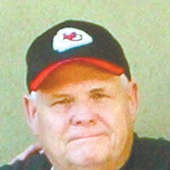Bottle boy at the local grocery store
In grocery stores all over our town and around the country, we once had a startup position for young boys, known simply by the job title, "bottle boy." This occupation may have had a simple sounding title, but it was far from lacking in importance.
At the front of every grocery store there was some type of check-in location, where shoppers would carry in a variety of glass bottles. By and large, the majority of these were soda pop bottles, hauled by patrons in heavy-duty cardboard carrying containers. Bottle boys stacked these bottles by company and product for pickup.
The checkers at the store would give you a token receipt for the number of bottles you had returned. It was generally a simple exchange process. When you checked your groceries most shoppers had purchased an equal number of new filled bottles. If you were buying a new amount of soda, or you did not have returns from a previous shopping trip, you were required to pay a bottle deposit on the new purchase.
The same glass deposit and return system was used for milk bottles. For many years, milk was actually delivered to each home in both small towns and cities. Milk vans would have regular routes across town. A customer would leave their empty bottles by the front door the night before, next morning the driver would leave new full bottles.
On South Cedar Street in the building where Gammon Glass is now located, there was a local soda pop company that bottled "Double Cola." It was a great place for me and my friends to watch firsthand the process of using returnable bottles.
The equipment would have the bottles lined up on a conveyer (probably after they had been steam washed), and the bottles would ride along in single file. As they approached the next station they went under a machine that filled them with the exact amount of cola. Then they proceeded to the capping station. The entire process did not appear to take long, and I am sure the new bottles were soon stacked and ready for delivery.
America changed a lot during my lifetime where containers were concerned. Those glass milk bottles were soon replaced by rectangular cartons made of wax covered cardboard. Thus began the first step in the elimination of the deposit/return system in our country.
In the late '60s the movie "The Graduate," offered a word in a line, that was to change everything. In this movie a young Dustin Hoffman (playing the part of Benjamin), is given advice by his future father-in-law, "I have just one word for you son, PLASTICS!"
At the time that simple word did not create much of a stir in our society. In those years the plastic manufacturing industry was thriving, but nowhere near the enormity it represents today.
Plastic milk cartons, pop bottles, water bottles, and every type of liquid container imaginable, has become the norm. It is an industry that seems to have no end in site.
There's the rub for me and probably for many of you. As easy and convenient as this material has found uses in our society, it has also come with some equally serious drawbacks.
There are several scientific and ecological issues with plastic. First on the list is the ever-increasing problem of refuse. The average American now makes use of about a half a pound of plastic everyday.
Because most of the plastic that is produced around the world is not biodegradable (meaning not able to decay naturally into safe base elements and compounds), our world is gradually being overwhelmed with waste plastic.
Nothing has brought this more to light, than the enormous floating trash islands, that can now be found in the Pacific Ocean, as a result of the Japanese tsunami. For many years now there has been a growing collection of mostly plastic in the northern Pacific. What was once the size of Texas, has now grown to twice the size of the continental United States.
There is also a substance in plastic that has a shortened scientific name BPA. I won't go into all the issues with these chemicals, but among their most significant, is a definite link to cancer.
As a kid we did not have much trash, and there were few trash trucks. What trash we had, we used to burn once or twice a week. I'm not sure how safe for the environment that was back then, but if you burned plastic today, you would definitely have a problem. Just ask any fireman what the effects of the fumes from burning plastic can be.
I am not a fool about the plastic industry, nor about we the general public. I know that plastics are not going to disappear anytime soon, but does that mean we can't make some changes that would really help make our lives healthier?
A few years ago the world outlawed the use of fluorocarbons in aerosol cans, because these chemicals were found to be destroying the ozone. Would it not be appropriate to mandate that only safe biodegradable plastic be produced?
In the state of Oregon, they have a tax on disposable containers. You get a break if you make use of returnable bottles. I for one would not mind having that opportunity made available.
I will close with my number one gripe about plastic. How many of you have purchased some item recently, then had difficulty getting the plastic covering open?
I've used scissors, knives, and finally a raging tearing process, to try and open some of these packages. More than once, I have ruined the product before I could free it for use.
Unlike Benjamin in the movie, I am not going to buy any plastic stocks. Truth be known, I hope we find a way to force some of these companies into outright bankruptcy!

